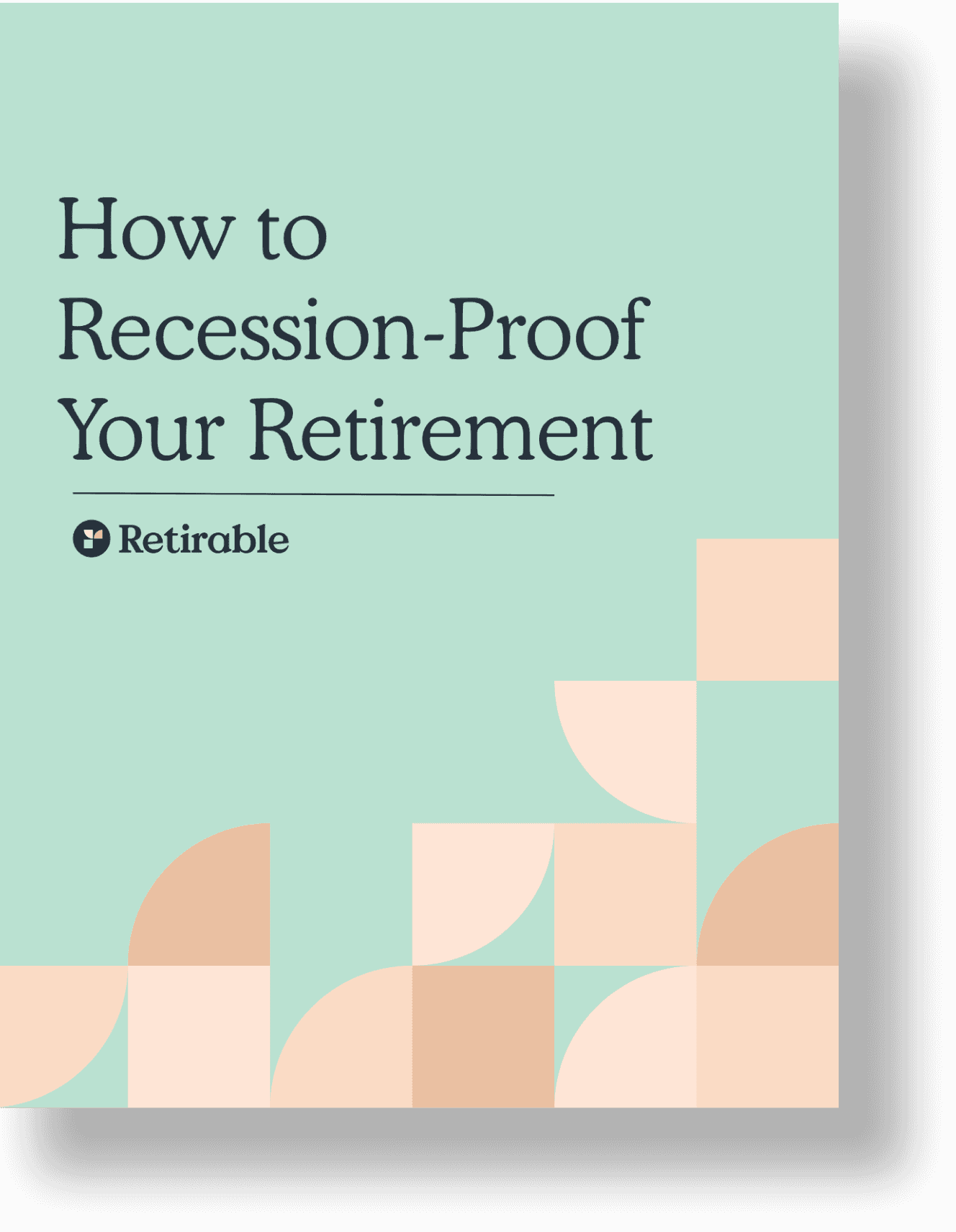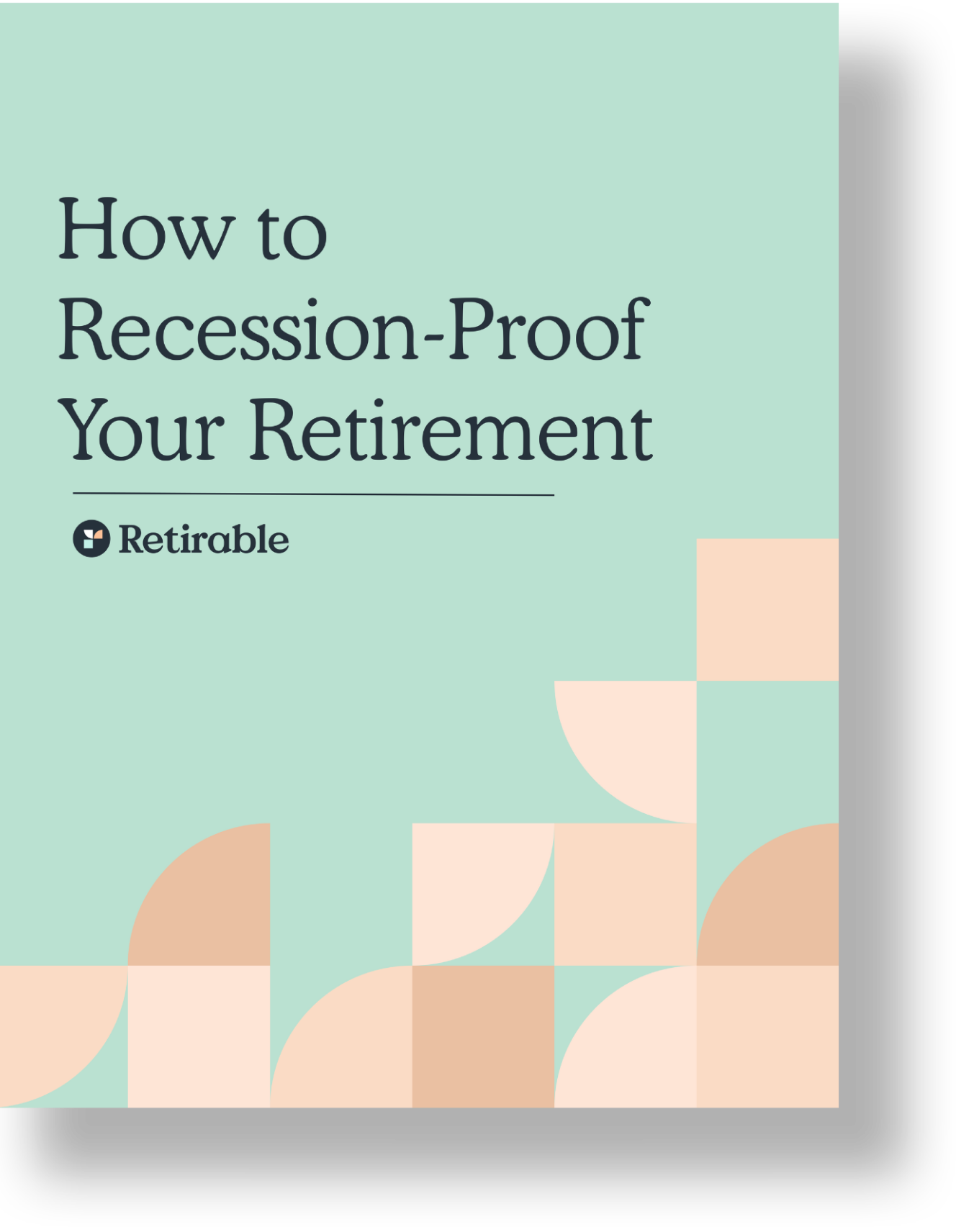Retirement Accounts
While you might be familiar with the basic differences between a 401(k) and an IRA, do you know how a Roth 401(k) and Roth IRA compare? These two retirement account options offer valuable opportunities to diversify your portfolio, mainly when saving on income taxes during retirement. Understanding the key differences between these accounts can help you determine if either is the right choice.

Harrison Schaefer, CFP®
•
Published March 20th, 2025
•
Updated May 14th, 2025
Table of Contents
Key Takeaways
With both Roth IRA and Roth 401(k) accounts, you are taxed on contributions—this means distributions are tax-free
Roth 401(k) accounts are typically offered through a workplace
Roth IRAs can be opened by anyone through a participating financial institution, although there are income limits
While you might be familiar with the basic differences between a 401(k) and an IRA, do you know how a Roth 401(k) and Roth IRA compare? These two retirement account options offer valuable opportunities to diversify your portfolio, mainly when saving on income taxes during retirement. Understanding the key differences between these accounts can help you determine if either is the right choice.
Roth 401(k) vs Roth IRA: Choosing the Right Retirement Plan
Choosing the best retirement plan has become increasingly important as pensions have fallen out of favor and, for most people, Social Security is not enough to sustain them.
If you have an employer-sponsored retirement plan, you might not have much say in which plan you select. However, you can always open an IRA as an additional plan—this is a wise option to consider if you think you will max out on the contribution limit for the year on your 401(k).
Roth IRA and Roth 401(k) plans are two retirement plan options to consider, each with their own pros and cons. These options might be available through your employer; 401(k)s are typically only available through a company plan, however, self-employed individuals can open them for their own business, regardless of whether they have employees—these are called Solo 401(k) plans.
Because there are so many retirement plan options out there, it’s always best to speak to a Certified Financial Planner to review what’s available to you—via your workplace—and what additional accounts you might be able to open to reach your retirement goals.
| Criteria | Roth 401(k) | Roth IRA |
|---|---|---|
| Income Limits | No income limits for contributions | Income limits apply for contributions |
| Contribution Limits (2025) | $23,500 (under 50) / $31,000 (50+) in 2025 | $7,000 (under 50) / $8,000 (50+) in 2025 |
| Employer Match | Employers can match contributions | No employer match available |
| Tax Treatment | Contributions are made with after-tax dollars | Contributions are made with after-tax dollars |
| Required Minimum Distributions (RMDs) | No RMDs are required | No RMDs during the account holder’s lifetime |
| Investment Options | Limited to employer’s plan options | Wide range of investment options |
| Withdrawal Flexibility | Penalties for early withdrawal of earnings | Contributions can be withdrawn anytime penalty-free; earnings may be subject to penalties before age 59½ |
| Ideal For | High-income earners, those with employer match, those who max out their IRA contributions | Individuals seeking more control over investment choices, those with lower incomes |
What is a Roth 401(k)?
According to Fidelity, almost 80% of the retirement plans that provide administrative services have a Roth 401(k) option, but only about 14% contribute to one. Every person’s situation is different, so a Roth 401(k) might not be the best option for you, but understanding how these plans work is critical when deciding whether to invest in one.
A Roth 401(k) is like a cross between a Roth IRA and a 401(k). Like a Roth IRA, the employee makes post-tax contributions, with earnings (and distributions) growing tax-free. The contributions, however, are made through payroll deductions and have the same limits as traditional 401(k) plans—much higher than that of IRA plans.
In 2024, an employee can contribute up to $23,000 of pre-tax income to a 401(k), with a catch-up contribution of $7,500 for those 50 and older.
Unlike Roth IRAs, Roth 401(k) accounts have no income limits. If there is a Roth option through your employer, you can contribute regardless of your income up to the greater of the plan’s limits or the 401(k) deferral limit.
What is a Roth IRA?
A Roth IRA is another type of retirement account—unlike a 401(k), it can be opened separately from your employer-sponsored plan. Some people use a Roth IRA as an alternative or addition to their employer-sponsored plan. As with other Roth accounts, contributions to a Roth IRA are made with post-tax dollars, allowing withdrawals to be tax-free. This can be a massive benefit for those who expect to be in higher income brackets during retirement.
Because there are income limits that prevent high earners from opening Roth IRA accounts, these retirement plans are predominately for lower and middle-income employees.
In 2024, the income limits for Roth IRA accounts are $161,000 for single filers and $240,000 for married couples filing jointly. Suppose your MAGI (modified adjusted gross income) falls between $146,000 and $160,999 as a single filer (or between $230,000 and $239,999 as a married couple filing jointly). In that case, you can open a Roth IRA—but you won’t be allowed to contribute the maximum amount each year.
Another critical difference between Roth 401(k) accounts and Roth IRAs is the contribution limit. In 2024, the annual contribution limit for a Roth IRA is just $7,000—or $8,000 if you’re 50 years or older. Compare that to the yearly contribution limit for a Roth 401(k), which is $23,000.
Comparing Roth 401(k) and Roth IRA
Let’s examine the key differences between Roth 401(k)s and Roth IRAs. Although they offer similar tax benefits, factors like eligibility, contribution limits, and other considerations can influence which account best suits you and your specific retirement goals.
Contribution Limits
A contribution limit is the maximum you can add to a specific retirement account each year.
Key differences
- Roth 401(k) accounts have much higher contribution limits
- The 2025 limit for Roth 401(k) accounts is $23,500 for those under 50) and $31,000 for those over 50
- The 2025 limit for Roth IRA accounts is $7,000 for those under 50) and $8,000 for those 50 and older
Income Limits
Some plans have income limits, which state that if you earn over a certain amount, you aren’t eligible to participate in that retirement plan. The income limits are based on your maximum adjusted gross income (MAGI): your federal taxable income with select deductions, such as student loan interest, added back in.
Key differences
- There is no income limit for Roth 401(k) accounts
- Roth IRAs have income limits; if your MAGI is higher than $161,000 (as a single filer) or $240,000 as a married couple filing jointly, you are ineligible to contribute to a Roth IRA
- If your income falls between $146,000 and $160,999 as a single filer (or between $230,000 and $239,999 as a married couple filing jointly), you can open a Roth IRA—but you won’t be allowed to contribute the maximum amount each year
Employer Match
Some plans have an optional employer match. When employers participate, they agree to contribute the same amount as the employee, usually up to a certain percentage. Typically, employer matches range between 3% and 5%.
Key differences
- Employers are able to make matching contributions to Roth 401(k) accounts, but not to Roth IRA accounts
Payroll Deductions
Many employer-sponsored plans will allow you to contribute directly to the plan with pre-tax dollars, which makes it easy to build wealth—the money never hits your bank account so you won’t spend it.
Key differences
- Both accounts allow for payroll deductions, but usually, Roth 401(k) account deductions are handled through your employer, while Roth IRA deductions will need to be set up with your financial institution
Required Minimum Distributions (RMDs)
RMDs, a short way of saying “required minimum distributions,” are the distributions you must take from a retirement account once you reach a certain age. For instance, the RMD age for social security is 73—if you turned 73 this year, you must begin taking distributions.
Key differences
- In 2025 and beyond, you do not need to take the required minimum distributions from a Roth 401(k)
- As of January 1, 2023, the SECURE Act 2.0 increased the age for RMDs from 72 to 73 for people born between 1951 and 1959 and age 75 for those born in 1960 or later
- If you were at the RMD age in 2023, you need to take your Roth 401(k) RMD for that year Roth IRAs do not have RMDs
Range of Investments
Some employer-sponsored plans only allow for investments into specific vehicles or are structured with a qualified default investment option (QDIA), usually a target-date fund.
Key differences
- Roth 401(k) accounts have much more limited investment options, which the plan administrator sets
- Roth IRAs have a much more robust range of investment options
- You can also shop around for a Roth IRA from a financial institution that is a good fit for you; with a Roth 401(k) you are stuck with your employer’s plan
Accessibility
Specific retirement plans are restricted in some way—either because you need to be an employee of a company offering the plan or make it under a certain income.
Key differences:
- Unless you are a business owner or self-employed, Roth 401(k) accounts are set up by your employer and managed mainly by them
- Any individual can open Roth IRA accounts through a sponsoring financial institution
Withdrawals
Different plans have different rules around withdrawals—depending on which kind of account you have, you might be subject to a 10% tax penalty if you withdraw before you turn 59 1/2 unless your withdrawal qualifies for an exception. The IRS defines these exceptions and includes disability, certain medical expenses, and college tuition payments.
Key differences:
- It is difficult to access your Roth 401(k) before you turn 59 ½; to take withdrawals early, you need a qualifying reason or will be subject to a 10% tax penalty on top of standard income tax
- With a Roth IRA, you can withdraw your contributions at any time without penalties or taxes—earnings are still unavailable until you reach 59 ½
- Under certain circumstances—buying a home or paying for childbirth costs—you can withdraw your earnings without penalty, provided you have held the account for at least five years
- All plan participants are allowed to access up to $1,000 annually from a retirement savings account for emergency expenses without paying the 10% early withdrawal penalty
Protect yourself from scams and fraud.
Every Retirable client is protected with $1M in identity theft insurance.| Criteria | Roth 401(k) | Roth IRA |
|---|---|---|
| Contribution Limits | High Limits: $23,500 (under 50) / $31,000 (50+) in 2025 | Lower Limits: $7,000 (under 50) / $8,000 (50+) in 2025 |
| Income Limits | No Limits: No income restrictions for contributions | Income Restrictions: Contributions limited by income thresholds |
| Employer Match | Employer Contributions: Employers may match, increasing savings | No Employer Match: Individual contributions only |
| Automatic Payroll Deductions | Ease of Contribution: Automatic deductions from paycheck, managed through employer | Manual Contribution: Automatic deductions allowed, but must be set up by the individual |
| Required Minimum Distributions | No RMDs: No required minimum distributions during the account holder’s lifetime | No RMDs: No required minimum distributions during the account holder’s lifetime |
| Investment Options | Limited Choices: Restricted to employer’s plan offerings | More Control: Wide range of investment options |
| Loan Availability | Loan Option: May allow loans against the account balance | No Loan Option: Loans are not permitted |
| Accessibility | Wide Access: Available to all employees with an employer plan | Income-Based Access: Available only to those with earned income below the threshold |
| Withdrawal Flexibility | Restricted Withdrawals: Early withdrawal penalties may apply | Flexible Withdrawals: Contributions can be withdrawn anytime penalty-free (earnings may incur penalties)** |
Frequently Asked Questions
Discover answers to the most frequently asked questions about Roth 401(k) and Roth IRA accounts.
Can I have a Roth IRA and a Roth 401(k) simultaneously?
Absolutely. If you are offered a Roth 401(k) through your workplace and wish to open a second retirement account to build wealth, you could open a Roth IRA. Remember that Roth IRAs have income limits, so you might not be eligible if you are a high-earner.
Can I take a loan from my Roth IRA?
IRAs do not have loan options. Instead, plan participants can withdraw or rollover funds to another qualified account or IRA. You could also withdraw the funds and replace them within 60 days, preventing any tax penalties from being issued against you.
What investment options can I choose from with a 401(k)?
Every 401(k) plan is different, but most allow employees to choose from a few investment options via a financial services advisory group (e.g. Fidelity). Employees can usually choose from mutual funds, index funds, foreign funds, real estate, and bonds. As you get closer to retirement, you can change your investments as needed—possibly switching from something more risky to less risky.
Can I roll over a Roth 401(k) into a Roth IRA?
Yes, a Roth 401(k) can be rolled over into a Roth IRA, as both accounts have the same tax implications—contributions and earnings in the IRA, as with the Roth 401(k), will grow tax-free. Note that because of these tax implications, you can only transfer from Roth accounts to other accounts.
What happens to my Roth 401(k) if I change jobs?
If you change jobs, you have a few options for your Roth 401(k). You can keep the account open with your old employer (though note that you might be subject to higher administrative fees), transfer your account into another one you hold with your new employer, or choose to rollover your Roth 401(k) into a Roth IRA.
Can I contribute to a Roth 401(k) if I already contribute to a Traditional 401(k)?
Yes. You can split your annual contributions between a traditional and Roth 401(k) if your employer offers both options. Remember that the total amount you contribute across the two accounts cannot exceed the annual contribution limit. In 2025, the limit is $23,500, or $31,000 if you’re 50 or older—this includes catch-up contributions.
Share this advice

Harrison, a Certified Financial Planner® and Senior Financial Advisor at Retirable, has nearly a decade of experience across wealth building, investment advising, and financial education. He prides himself on working one-on-one with each client to help them at every step so they enter retirement with peace of mind.
Understanding 401(k)s
401(k) Rules
Cashing Out your 401(k)
Understanding Roth 401(k)s
Roth IRA Basics
Share this advice

Harrison, a Certified Financial Planner® and Senior Financial Advisor at Retirable, has nearly a decade of experience across wealth building, investment advising, and financial education. He prides himself on working one-on-one with each client to help them at every step so they enter retirement with peace of mind.
Free Retirement Consultation
Still have questions about how to properly plan for retirement? Speak with a licensed fiduciary for free.






